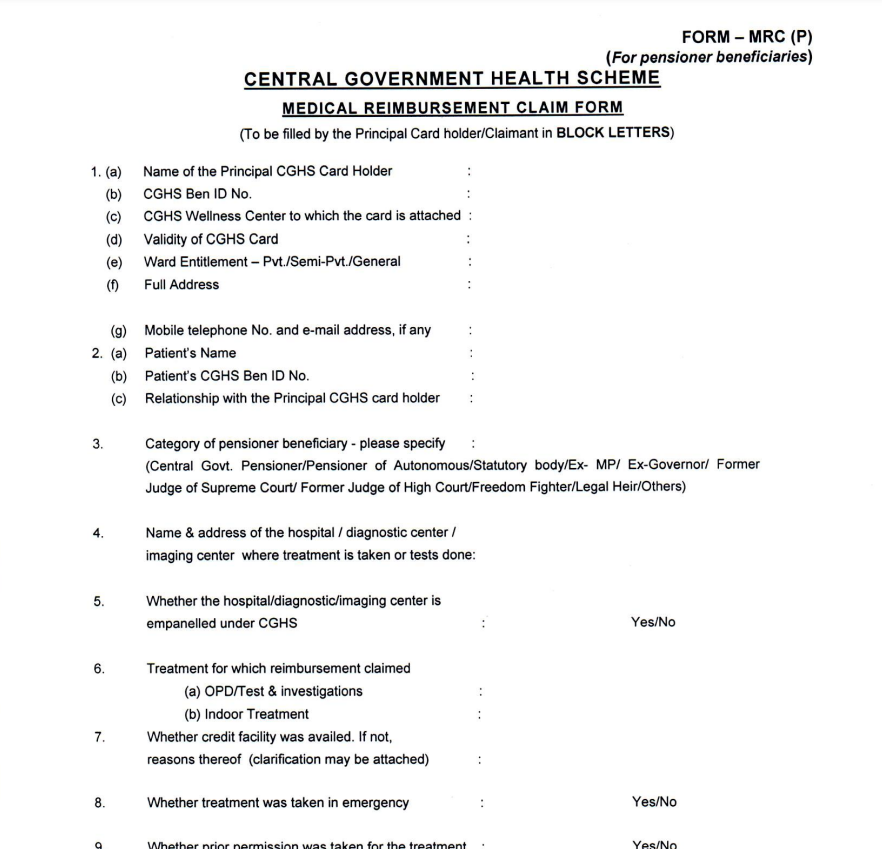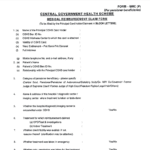Reimbursement Form For Pensioners – You can obtain the necessary forms online if you are a pensioner and require reimbursement for your Medicare Part B premiums. For the Medicare program, these forms are frequently utilized. The reimbursement procedure is straightforward. Simply complete the form with the necessary details, like your name and social security number.
Compensation for OPD care
A new benefit for retirees has been made available by CGHS: reimbursement for outpatient care (OPD). Family pensioners are now eligible for this benefit as well. By giving up his or her current CGHS OPD benefits, the pensioner or family pensioner can receive the new benefit. The appropriate endorsements will then be made to the pensioner’s CGHS card by the CGHS authorities, and a certificate will be issued within four days.
If the pensioner has passed away, the claimant must present the succession certificate they received from the court or the deceased person’s heir. Additionally, the claimant needs a NOC from the decedent’s legitimate heirs. The hospital should also give a summary of the death. The patient should also receive the stent’s outer pouch, which includes the batch number and other information.
Medicare Part B premiums are repaid.
Pensioners who are enrolled in a Medicare-sponsored plan are eligible for reimbursement for Medicare Part B. You must correctly fill out an application in order to apply. You can do this over the phone or online. The form needs to be submitted once a year.
In the past, Medicare Part B enrollment for retirees made them all eligible for reimbursement. The guidelines for this benefit, however, have changed as of 2013. Additionally, recipients must be enrolled in the SERS retiree health care program. All pensioners will be impacted by this change, but grandfathered retirees will still be eligible for reimbursement. The number of retirees receiving this benefit is consequently declining.
The reimbursement will be for a lesser amount than the typical Part B premium. However, you must provide the EUTF with the necessary supporting documentation if the amount you are reimbursed exceeds the standard amount. Two to three months should pass before this. You will receive your reimbursement following the processing of your application.
Pensioners may receive assistance with medical expenses through Medicare Part B reimbursement. Depending on your income, the government may reimburse you a different amount. Your monthly premium will be higher, for instance, if you reside in a state that mandates retirees pay Medicare premiums. But you should still be qualified for reimbursement if you reside in a state that exempts residents from paying Medicare premiums.
Make sure to sign up for a Medicare-coordinated plan if you’re a pensioner. If you don’t, your medical expenses might go up. You might even lose your UC-sponsored health insurance and be compelled to join a more expensive Medicare-coordinated health plan. Additionally, if you stop paying your Part B premiums, you might notice that your monthly pension payment decreases.
Download Reimbursement Form For Pensioners 2024

